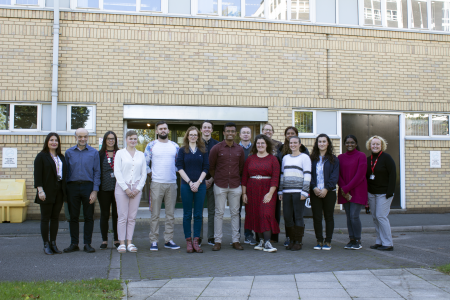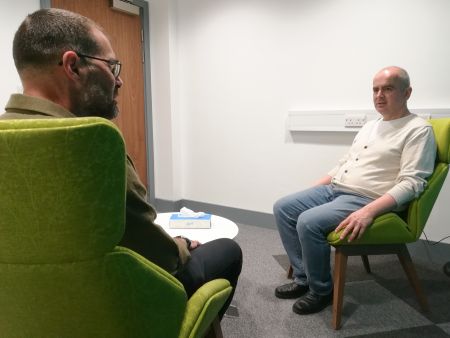Funding will Help Develop Communication with Those Living with Dementia

Funding will Help Develop Communication with Those Living with Dementia
Tuesday 25 November 2014
In collaboration with Six Degrees Social Enterprise, the University of Salford has been awarded a Knowledge Transfer Partnership (KTP) valued at £164,696 to look into ways of improving meaningful ways of communicating and engaging with people living with dementia.
Sponsored by InnovateUK, along with other government funding organisations, KTPs encourage collaboration between businesses and universities. The KTP will help further develop an approach known as Empathic Curiosity, which is a way to communicating with people with dementia which can help caregivers connect with them and sustain meaningful engagement.
The partnership will appoint a full-time recent graduate for 30 months to deliver the project and provide a mechanism for sharing learning amongst the partners. These activities will contribute to the development of an informed and effective dementia care workforce.
Once the Empathic Curiosity approach is developed it will be taught in a variety of ways including face-to-face and online formats to informal carers, health and social care staff and staff from other agencies whose work may put them in contact with people with dementia.
Natalie Yates-Bolton, Senior Lecturer in Nursing at the University, said: “The initial aim of this project is to develop an effective approach to teaching Empathic Curiosity. The longer term goal is to help those providing care for people with dementia care so that they can support meaningful communication and engagement for people living with dementia.”
Empathic Curiosity focuses on experiences and feelings by adopting an empathic and curious approach to communication and relationship building. It is based on seven skill sets, which can be adapted for use with people who have mild to severe levels of communicative impairment which are:
• Being attentive to differences in individual needs;
• Staying calm and relaxed;
• Asking short open questions in the present tense;
• Picking up on emotional cues;
• Being sensitive to the pacing issues;
• Searching for the meaning of simple metaphors;
• Paying close attention to our own responses.
The team includes:
- Natalie Yates-Bolton: Senior Lecturer in Nursing, University of Salford;
- Dr Phil Mc Evoy: Managing Director, Six Degrees Social Enterprise;
- Kelly Hylton: Operational Manager, Six Degrees Social Enterprise
- Dr Tracey Williamson: Reader in Public Involvement, University of Salford;
- Dr Elizabeth Collier: Lecturer in Nursing, University of Salford;
- Dr Morven McEachern: Reader in Marketing/ Director of the Centre for Social Business.
For further information on the Salford Institute for Dementia click here









